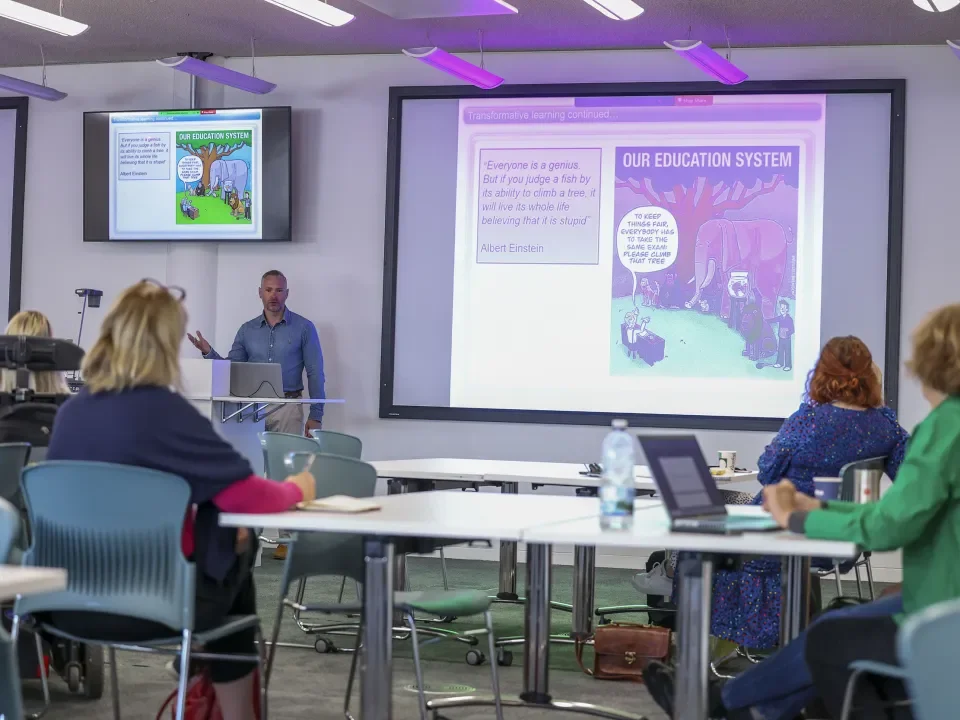

DCU staff attend UDL workshop with Dr Kevin Merry
In his role with Leicester, Dr Merry supports the adoption and application of UDL among the University’s large community of academic and professional services staff.
The DCU workshop, which took place on Thursday, 24 August, saw Dr Merry introduce the key principles of UDL as part of a short talk. He focused on why UDL is important highlighting the increasing diversity within higher education institutions over recent years. Kevin also outlined how UDL principles can be intentionally incorporated into instructional design considerations when designing programmes or courses, units or modules, or single instructional experiences.
In the second part of the session, Kevin split staff members into design teams to work together to create an instructional experience using a learning approach known as CUTLAS. CUTLAS stands for Creating Universal Teaching Learning & Assessment Strategies.
Essentially, the CUTLAS process supports staff with the intentional design of learning experiences underpinned by the UDL principles and containing the key design elements required to support learning among diverse groups of learners. Kevin asked staff members to consider a cheese sandwich when designing their instructional experience. The cheese is in the middle and this is where learners develop higher order skills alongside teachers and peers in class. Either side are the slices of bread – these are self-directed study and are where learners engage with content, revisit ideas and evaluate their learning.
Each group was then given a scenario where they had to apply UDL when designing a two-hour lecture with two learning outcomes. Using post it notes, each group created a story board on flip chart paper where they plotted learning outcomes (orange), evaluation activities (yellow), learner activities (green), teacher activities (blue) and resources (pink). Groups also had the opportunity to discuss their ideas with Kevin and receive feedback.
A big thank you to Kevin for coming over to deliver the session. There were lots of important takeaways and positive feedback from staff.




